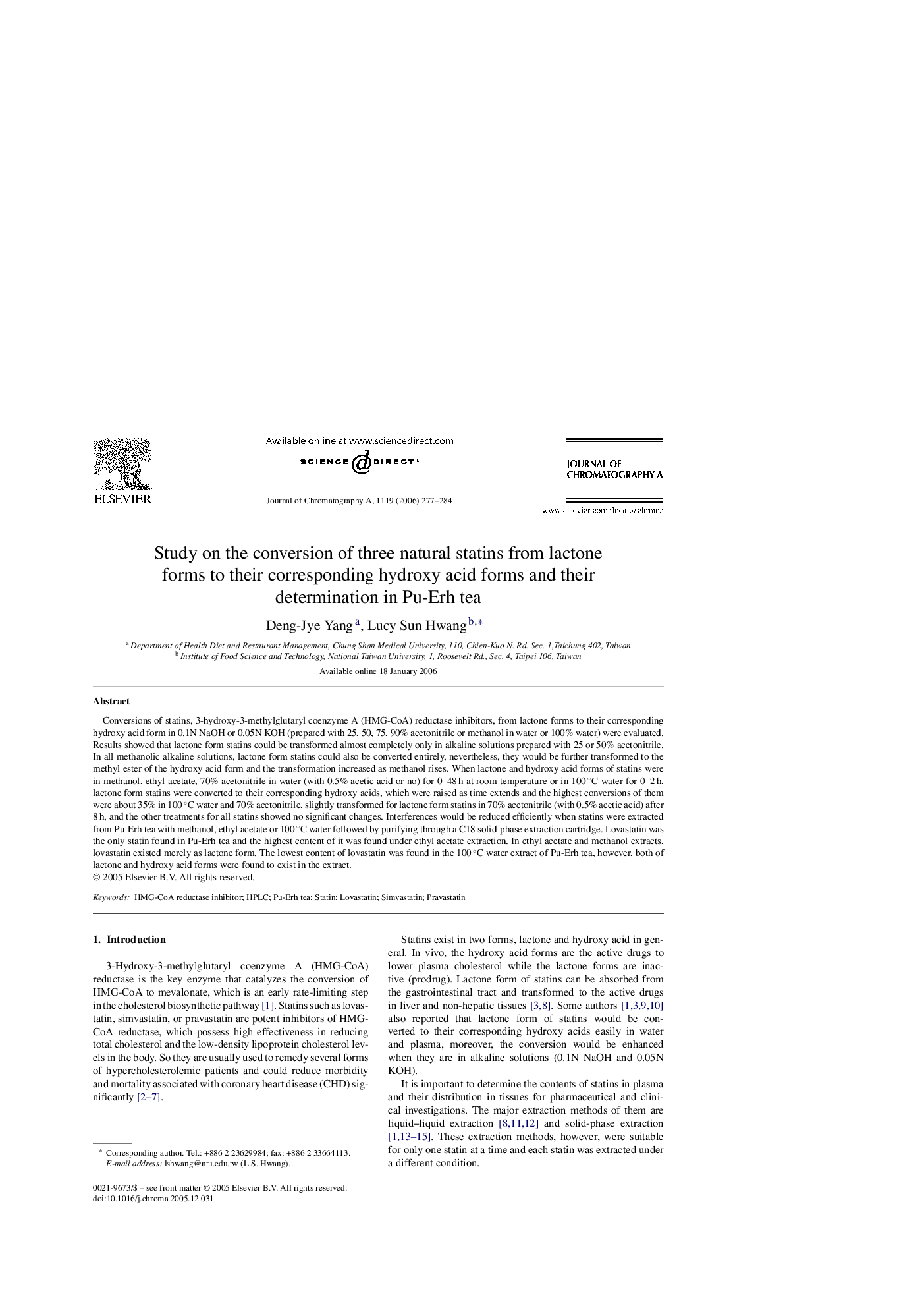| Article ID | Journal | Published Year | Pages | File Type |
|---|---|---|---|---|
| 1210179 | Journal of Chromatography A | 2006 | 8 Pages |
Conversions of statins, 3-hydroxy-3-methylglutaryl coenzyme A (HMG-CoA) reductase inhibitors, from lactone forms to their corresponding hydroxy acid form in 0.1N NaOH or 0.05N KOH (prepared with 25, 50, 75, 90% acetonitrile or methanol in water or 100% water) were evaluated. Results showed that lactone form statins could be transformed almost completely only in alkaline solutions prepared with 25 or 50% acetonitrile. In all methanolic alkaline solutions, lactone form statins could also be converted entirely, nevertheless, they would be further transformed to the methyl ester of the hydroxy acid form and the transformation increased as methanol rises. When lactone and hydroxy acid forms of statins were in methanol, ethyl acetate, 70% acetonitrile in water (with 0.5% acetic acid or no) for 0–48 h at room temperature or in 100 °C water for 0–2 h, lactone form statins were converted to their corresponding hydroxy acids, which were raised as time extends and the highest conversions of them were about 35% in 100 °C water and 70% acetonitrile, slightly transformed for lactone form statins in 70% acetonitrile (with 0.5% acetic acid) after 8 h, and the other treatments for all statins showed no significant changes. Interferences would be reduced efficiently when statins were extracted from Pu-Erh tea with methanol, ethyl acetate or 100 °C water followed by purifying through a C18 solid-phase extraction cartridge. Lovastatin was the only statin found in Pu-Erh tea and the highest content of it was found under ethyl acetate extraction. In ethyl acetate and methanol extracts, lovastatin existed merely as lactone form. The lowest content of lovastatin was found in the 100 °C water extract of Pu-Erh tea, however, both of lactone and hydroxy acid forms were found to exist in the extract.
